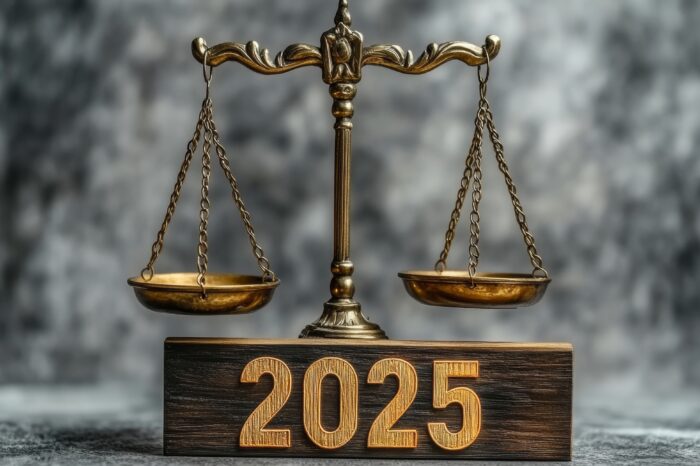
California Law Updates for 2025
MINIMUM WAGE INCREASE
California now requires that the minimum wage for non-exempt employees be set at $16.50 per hour, regardless of employer size. The legislature’s reasoning for this increase was to keep wages in line with inflation and the rising cost of living.
California voters rejected Prop 32 in November 2024, which would have raised the minimum even higher for larger employers. Of note, although $16.50 per hour is the state standard, some cities and counties have set higher minimum wages. It is crucial to check local regulations to ensure compliance.
The increase in minimum wage also impacts ‘exempt’ employees (e.g. salaried employees) who must now be compensated with a salary of at least $68,640 annually.
EXPANDING PAID FAMILY LEAVE
Starting in 2025, S.B. 951 will enhance California’s Paid Family Leave and State Disability Insurance programs to provide increased financial payments for disabled workers. Under California Unemployment Insurance Code §3301(b)(2), individuals earning 70% of the state’s average weekly wage (approximately $63,000 annually) are eligible to receive up to 90% of their regular wages while on leave. Workers earning above this threshold will receive 70% of their regular wages. Previously, the wage replacement rates ranged from 60% to 70%.
These programs are funded through employee payroll contributions. Most employees who work for private employers, and some public employees, contribute to the SDI fund, as indicated by deductions labeled “CA SDI” or similar on pay stubs.
CRACK DOWN ON PROPERTY CRIME
Governor Newsom signed into law ten bills in August 2024 in an attempt to crack down on property crime in California. These bills encompass new and increased penalties for stolen property, damaged property, and vehicle break-ins as well as updating felony threshold counts and eliminating organized retail theft sunset provisions.
These new laws allow prosecutors and law enforcement to hold criminals accountable without costing California taxpayers hundreds of millions of dollars more each year while avoiding the diversion of important resources from schools, first responders, and addressing the homelessness crisis.
These bills are:
A.B. 1779 – Theft: Jurisdiction
A.B. 1802 – Crimes: Organized Theft
A.B. 1972 – Regional Property Crimes Task Force
A.B. 2943 – Crimes: Shoplifting
A.B. 3209 – Crimes: Theft; Retail Theft; Restraining Orders
S.B. 905 – Crimes: Theft from a Vehicle
S.B. 982 – Crimes: Organized Theft
S.B. 1144 – Marketplaces: Online Marketplaces
S.B. 1242 – Crimes: Fires
S.B. 1416 – Sentencing Enhancements: Sale, Exchange, or Return of Stolen Property
ARTIFICIAL INTELLIGENCE (AI) TRANSPARENCY
S.B. 942 establishes obligations for generative AI providers with systems that have over 1 million monthly users and are publicly accessible within California. Providers must offer a free AI detection tool that meets specific criteria and is accessible to the public. They are also required to include disclosures in AI-generated or altered content, ensuring it is clearly identifiable as AI-created and providing the origin of the information either directly or through a permanent website link.
If a third-party licensee modifies the AI system to remove these disclosures, the provider must revoke the license within 96 hours of discovering the change. Violations of these provisions will result in a $5,000 civil penalty per incident, enforceable by the Attorney General, city attorney, or county counsel.
ENTERTAINMENT ZONES AND CANNABIS CAFES
S.B. 969 lets local governments set up entertainment zones where bars and restaurants can sell alcohol for customers to enjoy on public streets and sidewalks. A.B. 1775 allows cannabis retailers to serve food and drinks at Amsterdam-style cafes, permitting on-site consumption alongside food, beverages, or live entertainment.
HOUSING PROTECTIONS
A.B. 2347 extends the time tenants have to respond to an eviction notice from 5 to 10 days, giving renters more time to seek legal advice and avoid automatic case losses. S.B. 450 simplifies converting single-family homes into duplexes or fourplexes by closing local government loopholes, requiring decisions on housing conversion applications within 60 days, and preventing denials based on visual impact concerns.
FIREARM SAFETY LAWS
A.B. 1598 mandates that firearm dealers provide customers with a pamphlet detailing the reasons for and risks associated with firearm ownership. The pamphlet will include information on the increased risk of death in the household due to suicide, homicide, or unintentional injury.
A.B. 2917 directs courts to broaden the criteria for issuing gun violence restraining orders, specifically to include threats of violence, particularly those motivated by hate.
A.B. 1483, temporarily under a court injunction by the California Department of Justice, seeks to strengthen regulations limiting individuals to one handgun purchase within a 30-day period. If enacted, the bill would eliminate the exemption for private party transactions.
CONCLUSION
Should you have any questions regarding these or other new laws, the experienced attorneys and staff at Dias Law Firm, Inc. are here to help. We can assist you in understanding your rights and responsibilities under California law. Contact our office to schedule a consultation.
By: Diego I. Romo, Paralegal Intern
California now requires that the minimum wage for non-exempt employees be set at $16.50 per hour, regardless of employer size. The legislature’s reasoning for this increase was to keep wages in line with inflation and the rising cost of living.
California voters rejected Prop 32 in November 2024, which would have raised the minimum even higher for larger employers. Of note, although $16.50 per hour is the state standard, some cities and counties have set higher minimum wages. It is crucial to check local regulations to ensure compliance.
The increase in minimum wage also impacts ‘exempt’ employees (e.g. salaried employees) who must now be compensated with a salary of at least $68,640 annually.
EXPANDING PAID FAMILY LEAVE
Starting in 2025, S.B. 951 will enhance California’s Paid Family Leave and State Disability Insurance programs to provide increased financial payments for disabled workers. Under California Unemployment Insurance Code §3301(b)(2), individuals earning 70% of the state’s average weekly wage (approximately $63,000 annually) are eligible to receive up to 90% of their regular wages while on leave. Workers earning above this threshold will receive 70% of their regular wages. Previously, the wage replacement rates ranged from 60% to 70%.
These programs are funded through employee payroll contributions. Most employees who work for private employers, and some public employees, contribute to the SDI fund, as indicated by deductions labeled “CA SDI” or similar on pay stubs.
CRACK DOWN ON PROPERTY CRIME
Governor Newsom signed into law ten bills in August 2024 in an attempt to crack down on property crime in California. These bills encompass new and increased penalties for stolen property, damaged property, and vehicle break-ins as well as updating felony threshold counts and eliminating organized retail theft sunset provisions.
These new laws allow prosecutors and law enforcement to hold criminals accountable without costing California taxpayers hundreds of millions of dollars more each year while avoiding the diversion of important resources from schools, first responders, and addressing the homelessness crisis.
These bills are:
A.B. 1779 – Theft: Jurisdiction
A.B. 1802 – Crimes: Organized Theft
A.B. 1972 – Regional Property Crimes Task Force
A.B. 2943 – Crimes: Shoplifting
A.B. 3209 – Crimes: Theft; Retail Theft; Restraining Orders
S.B. 905 – Crimes: Theft from a Vehicle
S.B. 982 – Crimes: Organized Theft
S.B. 1144 – Marketplaces: Online Marketplaces
S.B. 1242 – Crimes: Fires
S.B. 1416 – Sentencing Enhancements: Sale, Exchange, or Return of Stolen Property
ARTIFICIAL INTELLIGENCE (AI) TRANSPARENCY
S.B. 942 establishes obligations for generative AI providers with systems that have over 1 million monthly users and are publicly accessible within California. Providers must offer a free AI detection tool that meets specific criteria and is accessible to the public. They are also required to include disclosures in AI-generated or altered content, ensuring it is clearly identifiable as AI-created and providing the origin of the information either directly or through a permanent website link.
If a third-party licensee modifies the AI system to remove these disclosures, the provider must revoke the license within 96 hours of discovering the change. Violations of these provisions will result in a $5,000 civil penalty per incident, enforceable by the Attorney General, city attorney, or county counsel.
ENTERTAINMENT ZONES AND CANNABIS CAFES
S.B. 969 lets local governments set up entertainment zones where bars and restaurants can sell alcohol for customers to enjoy on public streets and sidewalks. A.B. 1775 allows cannabis retailers to serve food and drinks at Amsterdam-style cafes, permitting on-site consumption alongside food, beverages, or live entertainment.
HOUSING PROTECTIONS
A.B. 2347 extends the time tenants have to respond to an eviction notice from 5 to 10 days, giving renters more time to seek legal advice and avoid automatic case losses. S.B. 450 simplifies converting single-family homes into duplexes or fourplexes by closing local government loopholes, requiring decisions on housing conversion applications within 60 days, and preventing denials based on visual impact concerns.
FIREARM SAFETY LAWS
A.B. 1598 mandates that firearm dealers provide customers with a pamphlet detailing the reasons for and risks associated with firearm ownership. The pamphlet will include information on the increased risk of death in the household due to suicide, homicide, or unintentional injury.
A.B. 2917 directs courts to broaden the criteria for issuing gun violence restraining orders, specifically to include threats of violence, particularly those motivated by hate.
A.B. 1483, temporarily under a court injunction by the California Department of Justice, seeks to strengthen regulations limiting individuals to one handgun purchase within a 30-day period. If enacted, the bill would eliminate the exemption for private party transactions.
CONCLUSION
Should you have any questions regarding these or other new laws, the experienced attorneys and staff at Dias Law Firm, Inc. are here to help. We can assist you in understanding your rights and responsibilities under California law. Contact our office to schedule a consultation.
By: Diego I. Romo, Paralegal Intern

